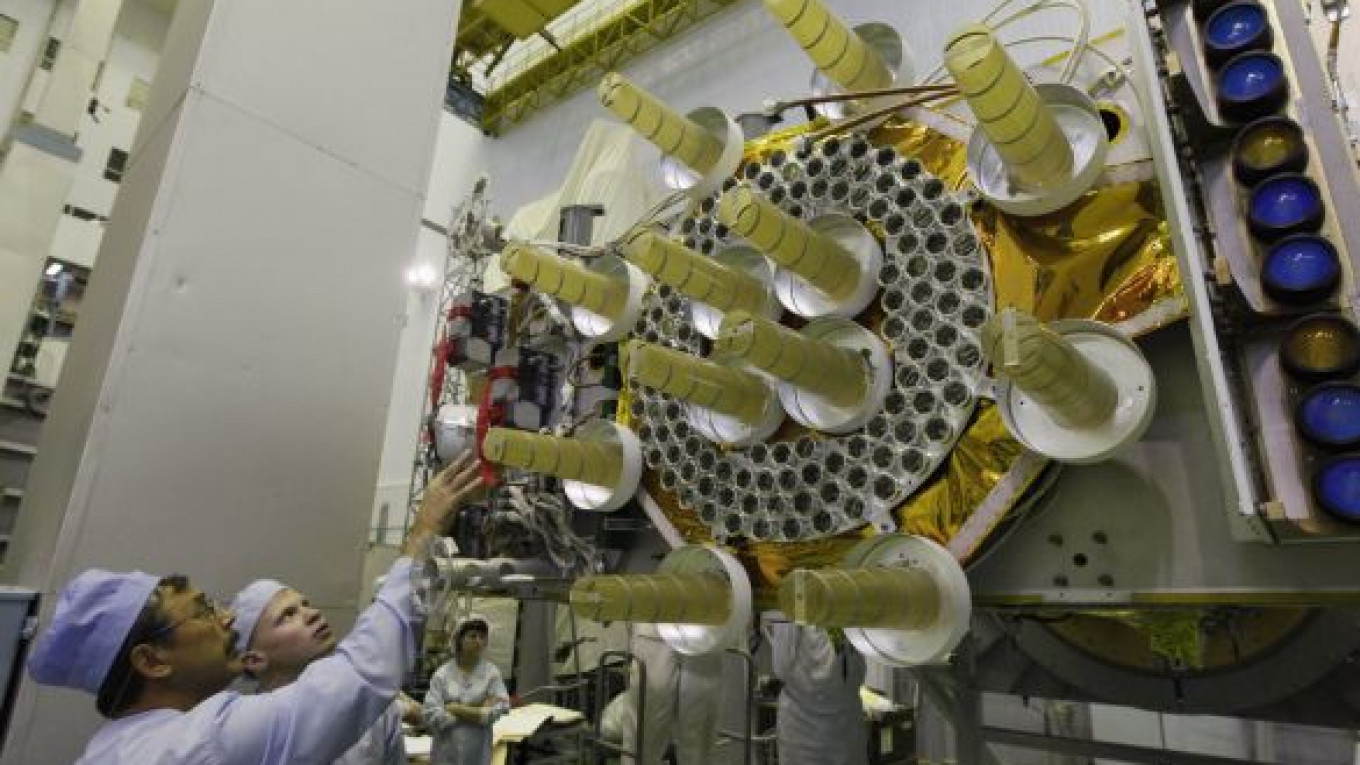Russia successfully launched a navigation satellite that will complete a global system to rival the U.S. Global Positioning System and give a much-needed boost to the beleaguered Russian space program.
The early Monday morning launch from Russia's northern Plesetsk Cosmodrome was the first Soyuz rocket launch since a Russian unmanned cargo flight to the International Space Station fell back to Earth in burning pieces in a failed August launch.
Russia is struggling to return confidence in its commercial launch capacity as a partner in the orbital space station after a series of botched launches.
When the navigation satellite becomes active in about a month, the Glonass global navigation system will be "fully complete," the Russian space agency quoted its deputy head Anatoly Shilov as saying on its web site.
The launch completes a constellation of 24 satellites needed to fully bring online Russia's answer to the U.S.-built GPS.
Moscow has spent $2 billion over the last decade in developing the Glonass system from Cold War technology used to guide Soviet missiles.
It hopes that the system, which has both civilian and military uses, will deliver what Prime Minister Vladimir Putin has called "satellite navigation sovereignty" and help spur the development of domestic consumer devices.
The series of costly failed launches has fuelled worries among international partners over reliance on Russia as the only means to ferry astronauts to and from the space station since NASA retired its space shuttle earlier this year.
Russia blamed the failure of the Progress rocket launch in August on a blockage in a kerosene fuel line and has set a new Progress launch for Oct. 30.
That launch will be closely watched as the last test run of the Soyuz rocket before a new astronaut trio blasts off for the space station on Nov. 14 from the Russian-leased launch pad in the southern Kazakh city of Baikonur.
A Message from The Moscow Times:
Dear readers,
We are facing unprecedented challenges. Russia's Prosecutor General's Office has designated The Moscow Times as an "undesirable" organization, criminalizing our work and putting our staff at risk of prosecution. This follows our earlier unjust labeling as a "foreign agent."
These actions are direct attempts to silence independent journalism in Russia. The authorities claim our work "discredits the decisions of the Russian leadership." We see things differently: we strive to provide accurate, unbiased reporting on Russia.
We, the journalists of The Moscow Times, refuse to be silenced. But to continue our work, we need your help.
Your support, no matter how small, makes a world of difference. If you can, please support us monthly starting from just $2. It's quick to set up, and every contribution makes a significant impact.
By supporting The Moscow Times, you're defending open, independent journalism in the face of repression. Thank you for standing with us.
Remind me later.






